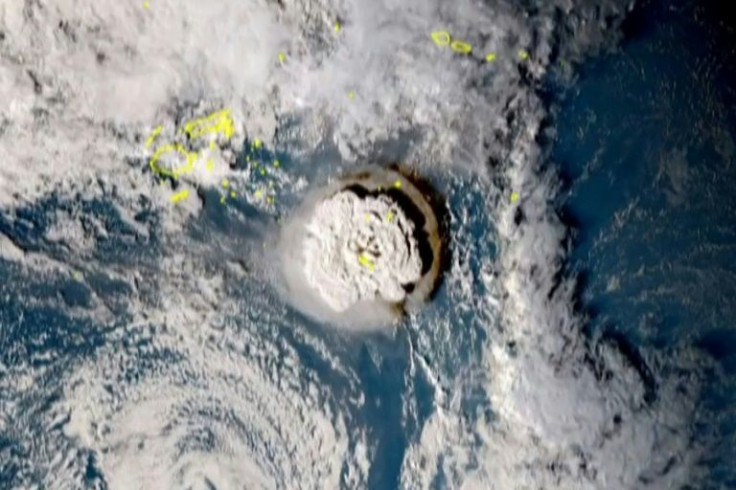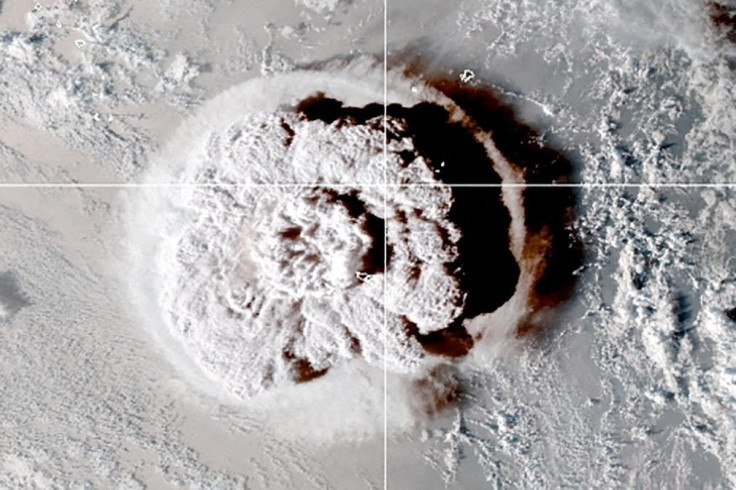Effects Of Tonga Volcano Eruption Reached Space: Study

The volcanic eruption in Tonga earlier in the year impacted various parts of the world. In a new study, scientists have found that its effects actually reached space.
The Hunga Tonga-Hunga Ha'apai volcanic eruption on Jan. 15 led to "atmospheric impacts around the world," noted the authors of the study, published Tuesday in the journal Geophysical Research Letters. It caused shock waves, sonic booms and even tsunami waves, noted NASA. Kayla Barron, an astronaut aboard the International Space Station (ISS) even shared on social media photos of the thick plume that blanketed the area.
"As a natural experiment, it can be used to test our understanding of how the lower atmosphere affects space weather," the researchers wrote. "Researchers are only beginning to document the chain of events post-eruption, and this paper focuses on its impact on the generator that drives electric fields in near-Earth space, a key part of space weather."
For their work, the researchers looked at data from NASA's Ionospheric Connection Explorer (ICON) mission, as well as the European Space Agency's (ESA) Swarm satellites. They found that "hurricane-speed winds and unusual electric currents" were formed in the ionosphere in the hours following the eruption. According to the researchers, the current "strengthened dramatically, then reversed."
"It's very surprising to see the electrojet be greatly reversed by something that happened on Earth's surface," said study co-author Joanne Wu, of the University of California, Berkeley. "This is something we've only previously seen with strong geomagnetic storms, which are a form of weather in space caused by particles and radiation from the Sun."
"The volcano created one of the largest disturbances in space we've seen in the modern era," said study lead author Brian Harding, of the University of California, Berkeley.
An illustration from NASA's Goddard Space Flight Center shows how the Hunga Tonga-Hunga Ha'apai eruption impacted the different layers of the atmosphere.
The study now adds to the understanding of the interactions between space and the atmosphere, the researchers said. Furthermore, it also shows how the ionosphere, which is where the Earth's atmosphere meets space and is the "home to all the charged particles" in the atmosphere, can be affected by what's happening on the ground, as well as in space.
In the case of the Tonga eruption, it appears that it "caused a major space weather event," the researchers said.

The eruption of an underwater volcano off Tonga, which triggered a tsunami warning for several South Pacific island nations, is seen in an image from the NOAA GOES-West satellite taken at 05:00 GMT January 15, 2022. CIRA/NOAA/Handout via Photo: Reuters / CIRA/NOAA




















